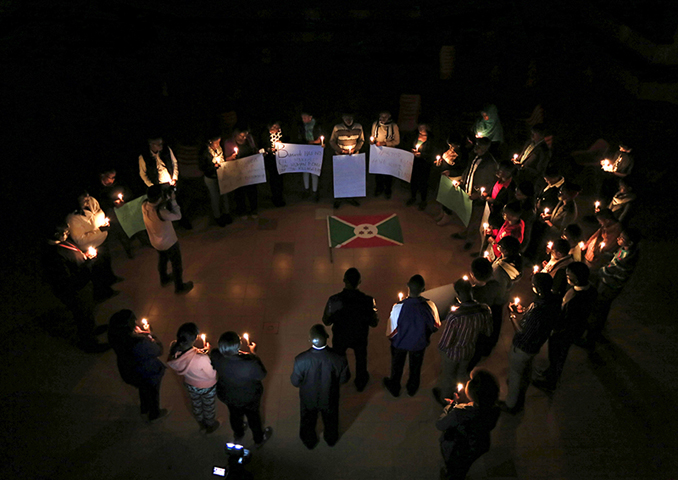
Students from the Catholic University light candles during a night vigil in solidarity with the Burundian people in Kenya's capital Nairobi, on Dec. 16, 2015. (Reuters/Noor Khamis)
A serious breakdown between the powerful Roman Catholic Church and the government in Burundi is raising concerns over stability in the East African nation, as senior government officials accuse the church of sponsoring violence.
Since April 2015, the country has been racked by chaos after President Pierre Nkurunziza agreed to run for a third term. Catholic bishops had strongly opposed the move, saying the constitution was clear that a president should serve only two terms.
Last month, Pascal Nyabenda, president of the National Assembly, accused the Catholic Church of playing a "purely political, not spiritual role," and said the government would not talk to "sponsors of terrorism."
"The church is crying just like everyone else," he said. "They are crying for an end to the violence. To accuse the church of sponsoring the violence is to clutch on some loose straws."
Mbandi said the Catholics in Eastern Africa are putting pressure on the international community to push for an end to the bloodshed in the majority Catholic country.
"We are urging that peace and dialogue becomes the government approach to solving the conflict," Mbandi added.
Still, with the increasing assassinations, torture, intimidation, deaths and the injection of more than 250,000 refugees, the bishops said, the country was at a crossroads. They urged Christian politicians to stop the country from plunging further into chaos.
Under an April 2 resolution, the U.N. Security Council will consider deploying U.N. police to the country, a move the Burundi government has accepted.

